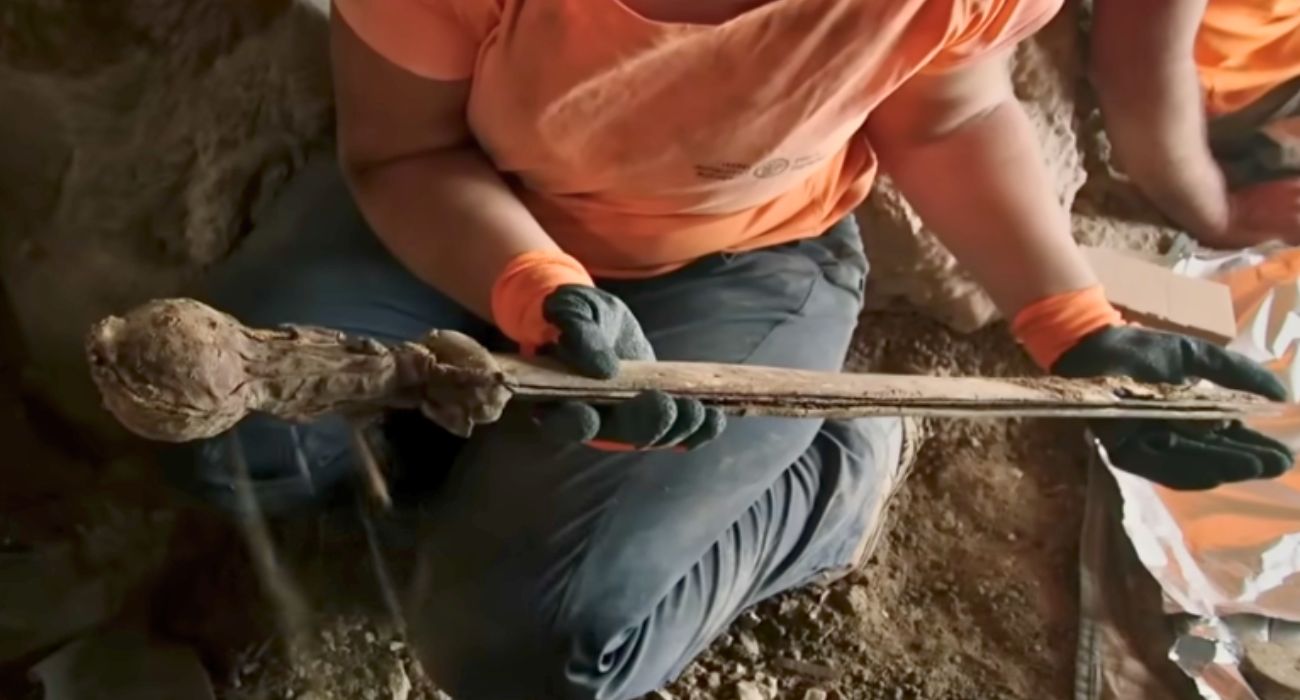Four remarkably well-preserved Roman swords believed to be nearly 2,000 years old have been discovered in a secluded cave on cliffs near the Dead Sea.
Israeli archeologists from the Israel Antiquity Authority (IAA) announced the extremely rare find last week.
One of the directors of the Judean Desert Survey Project, Eithan Klein, stressed that nothing like this has ever been found in Israel.
“You just realize that you’re touching history,” said Boaz Langford, noting nonetheless that the immaculate condition of the swords is such that they could be “picked up and used right now.”
The cave is situated in the En Gedi Nature Reserve, an oasis of springs and waterfalls in the Judean Desert roughly an hour from Jerusalem.
Many artifacts acting as testaments of a bygone age have been discovered over the years in this area.
“Not all are aware that the dry climatic conditions pertaining in the Judean Desert enable the preservation of artifacts that do not survive in other parts of the country,” noted Eli Escusido, IAA director, according to NBC News.
The IAA has been conducting a survey of the caves — of which there are hundreds — and excavating their contents to prevent further looting of these artifacts.
The team that made the recent discovery had actually ventured into the cave to examine an old stalactite.
The archeologists had planned to take multispectral images of an inscription in ancient Hebrew believed to date back to the era of the First Temple, also known as Solomon’s Temple, in 990 B.C.
Yet archaeologist Asaf Gayer spotted a Roman pilum, a long-shafted weapon resembling a spear.
The four swords, known as spatha, measuring between 18 and 25 inches, were uncovered shortly thereafter. Three swords are still in their original wooden scabbards.
While much research still needs to be done to determine the swords’ origin, the researchers speculated that these artifacts have ties to the Bar Kokhba Revolt, a major uprising that took place between 132 and 135 A.D.
Jewish rebels may have stolen the weapons from Roman soldiers and used the cave as a cache.
“Obviously, the rebels did not want to be caught by the Roman authorities carrying these weapons,” explained Klein, according to NBC News.
It remains to be seen what story the weapon cache will tell if the researchers are able to trace the manufacturers and owners.
“I shudder to think how much historical knowledge would have been lost had the looters reached the amazing artifacts in this cave before the archaeologists,” added Amir Ganor, director of the IAA’s Antiquities Looting Prevention Unit, according to NBC News.
The recent finding shows how the excavation of artifacts from across Earth’s history continues to this day and age.
As reported in The Dallas Express, in late August, archeologists uncovered a fascinating 3,000-year-old tomb of what many have called the “Priest of Pacopampa” in Peru’s northern highlands.
Seals and ornate offerings around the body suggest the man buried there was a leader or an elite. Yet he was placed oddly in the tomb, face-down with his feet crossed, piquing researchers’ interest.






